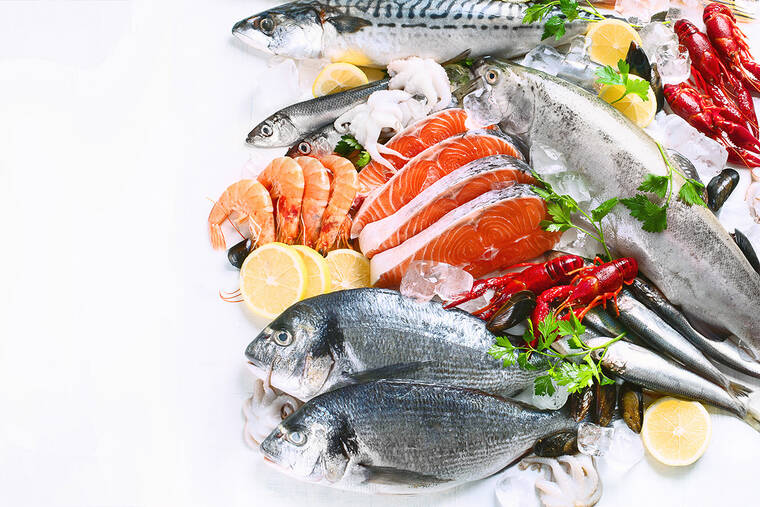‘Sea’ the individual
October is National Seafood Month, but the deadly seafood industry doesn’t deserve even one day of recognition, much less a whole month. The consumption of fish and other aquatic animals is fueling an environmental catastrophe. Seafood is unsustainable.
In the 1970s and ’80s, “Save the Whales” became an inescapable campaign catchphrase. A tidal wave of activism secured an international ban on commercial whaling. But whales are still in grave danger — due to fishing. Nearly half the plastic in the Great Pacific Garbage Patch comes from discarded fishing equipment. Over 300,000 whales and dolphins die each year after being injured by fishing nets or lines. In many cases, these victims spend their last moments desperately struggling to free themselves until they die from exhaustion, starvation, suffocation, strangulation, or dismemberment. Recent studies show that more than half the members of some whale species have been caught in fishing gear. Even when they’re lucky enough to escape death, their injuries are often permanent, and females who survive entanglement have much lower birth rates.
Aquatic mammals are fascinating individuals. Whales and dolphins have close-knit family structures and often communicate with one another through song. They’re devoted mothers, spending as much time as possible with their young. And just like humans, they grieve the loss of their loved ones, sometimes carrying a deceased baby for weeks.
The fish and crustaceans so callously disregarded as “food” are sensitive, intelligent animals, too. Fish can count and tell time, think ahead, and “talk” to one another. Lobsters are also complex individuals, and they use sophisticated signals to explore their surroundings and establish social relationships. Octopuses, like other animals, including humans, experience joy, excitement, boredom, and fear. Keenly smart and self-aware, they have been known to use seashells for protection, steal food from traps set by fishers, escape from aquariums, and even decorate their homes. And just like humans, these animals all have the capacity to feel pain.
Yet the cruel seafood industry inflicts horrific suffering on aquatic animals while contributing to the decimation of aquatic ecosystems. The profit-driven fish-farming business confines its victims to cramped facilities riddled with parasites and disease. Giant “net pens” pollute surrounding waters with antibiotics and chemicals. And despite what the industry and fishers might claim, “traditional” fishing is destructive, too. The U.S. Environmental Protection Agency reports that recreational boaters cause damage to lakes, coastal waters, and rivers by increasing pollutant concentrations, erosion rates, and levels of aquatic pathogens. An estimated 90% of large-fish populations have been wiped out — and many of those fish don’t even end up on a dinner plate, because the fishing industry discards more fish than it keeps. In April, a federal panel approved a temporary salmon fishing ban for much of the West Coast of the U.S. due to an alarming population decline.
Something that’s sustainable is part of a thriving, healthy ecosystem, and such ecosystems don’t have adverse effects on human health. The seafood industry fails on both counts. One investigation found unpredictable levels of mercury — which can cause impaired brain function in children — in five popular brands of canned tuna and suggests that pregnant women avoid it altogether. But the danger extends to everyone. Another study found that eating just a single fish pulled from a U.S. lake or river could be equivalent to drinking water tainted with dangerous chemicals for a month.
Fortunately, consumers don’t have to forgo the taste of seafood. With demand comes supply, and the vegan seafood industry is booming. Cruelty-free brands offer delicious fishless fillets, tuna-free tuna, crab cakes made from plants, and so much more. Turn October into National “Sea for Yourself Month” and give these treats a try.


